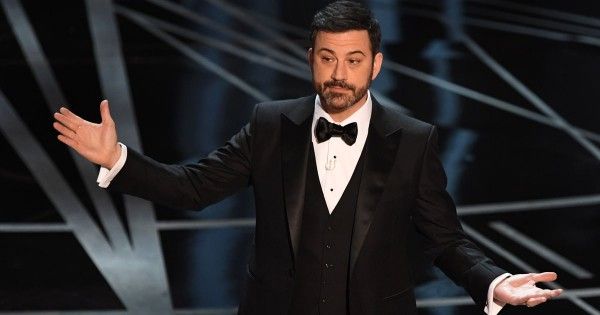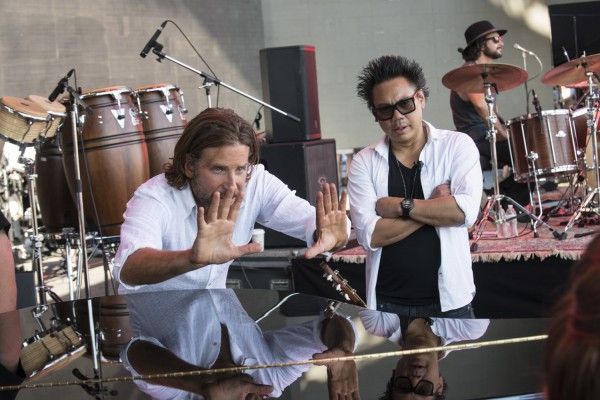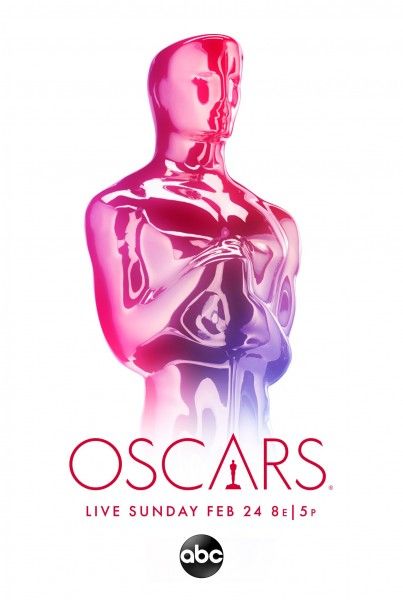The Academy of Motion Picture Arts and Sciences has been taking steps recently to try and boost ratings for the upcoming 91st Academy Awards, and the most recent change has gone down about as well as all the others—that is to say, not well at all. When the Academy first announced the creation of the “Popular Film Oscar” category last summer (which they subsequently walked back), they also announced a couple of other changes meant to shorten the telecast. These changes were understandably overshadowed by the silly Popular Film Oscar business, but now they’re poised to go into effect during the ceremony later this month.
One big change that’s been rubbing a lot of folks the wrong way is the notion that not all 24 categories will be given airtime. Instead, the Academy said it would announce winners in a handful of categories during commercial breaks, and then “reveal” the winners in short clip segments during the telecast. Yesterday, the Academy announced the four categories that will not be announced live on air this year: Cinematography, Film Editing, Makeup & Hairstyling, and Live-Action Short Film.
There are a lot of things wrong with this, but let’s dive into the obvious one first: air all the categories you dummies. It’s been reported that after last year’s nearly four-hour telecast, ABC had a meeting with the Academy and expressed their strong displeasure at the show’s length and ratings. Clearly the reason that the ratings for the Oscars were down was because the ceremony was too long, right? People just knew it was going to be a long ceremony, so they decided not to tune in. That makes perfect sense right?
Of course not. Ratings for the Oscars are down because ratings for all television are down. The way we watch TV today is vastly different from the way we watched TV in 2010, when 41.62 million people tuned in to see if Avatar would win Best Picture. A plethora of streaming options, millions of cord cutters, and the death of live TV viewing have all contributed to a sharply downward trend in TV “ratings”, and yet networks have survived knowing that people are simply watching TV differently. They’ll watch it later on their DVR, they’ll live-stream it from a VOD service, or they’ll simply just watch it on YouTube.
But beyond all of this, even with ratings down versus previous ceremonies, the Oscars remain the highest-rated live show of the year aside from the Super Bowl. It consistently performs better than the Tonys, the Emmys, and the Grammys, the latter of which ran for three hours and 45 minutes the other night and yet ratings were flat with the year before, and reception to the show overall was positive. The length of the ceremony is not why ratings are down. Full-stop.
And yet the Academy is kowtowing to ABC’s “demand” that this year’s show run at just three hours in length, which led to them cutting these four categories from the broadcast. Which leads to my next big gripe with this: If the goal of the Oscars is to celebrate the craft of filmmaking, relegating certain categories—which almost always will be “craft” categories—to commercial breaks automatically deems them less worthy of, say, Best Supporting Actor or Best Original Score. There’s no way the Academy is just going to choose to announce the winner of Best Actor during a commercial break, so the types of categories that are being given the cold shoulder are the ones that most benefit from a splashy presentation alongside the other big categories.
I speak from experience when I say for many young film fans, tuning into the Oscars is where you sometimes get your first exposure to arenas of filmmaking like cinematography or sound mixing. It can incite curiosity in burgeoning cinephiles that then blossoms into full-blown obsession. The celebration of these crafts live onscreen gives them their due weight, something that’s not necessarily promoted during a film’s marketing campaign or press circuit. And yet these are vitally important aspects of filmmaking. Quite literally, a movie does not exist without cinematography or editing. The idea that these categories are given “also ran” status during the Oscars makes my blood boil.
Which brings me to my last point: Who do you think you’re enticing by cutting categories from the broadcast? All of the major changes that have been announced over the last year for the Oscars have been in service of trying to bring in younger, less engaged viewers. But why? Why try and cater to people who already admittedly don’t care about the Oscars, instead of trying to craft the best possible ceremony for those that have been watching—and enjoying—the Oscars for most of their lives? Does the Academy really think that cutting Best Cinematography and presenting a shorter show will somehow make a 13-year-old who could not care less about Roma want to watch the Oscars? On what planet does that make sense?
Let the Oscars be long. They’re always long. It’s one night a year. People regularly watch three-hour-plus football games every single Sunday. Craft an Oscars ceremony that celebrates every aspect of filmmaking being awarded that night. Let the winners have ample time to take it all in and make a statement during their speech. It’s the biggest night of the year for some of these folks, and for cinephiles like myself who grew up loving the Oscars, I relish the opportunity to sit and watch a celebration of movies and moviemaking every year. Watching the Oscars turn into a sideshow trying to cater to disengaged viewers has been disheartening to say the least, and there’s no reason to think any of these changes are going to result in vastly improved ratings.
I don’t know what happens from here. I’m not convinced this year’s ceremony will have significantly higher ratings than years past, even with hit films like Black Panther, A Star Is Born, and Bohemian Rhapsody nominated. There are people who care about watching the Oscars, and there are people who don’t. The Academy should stop trying to “dumb down” the telecast to appeal to people who could not care less, and instead should simply try to make the show the best celebration of film it can be. And that includes celebrating all the people the Academy itself deemed worthy of nominating for an award.





